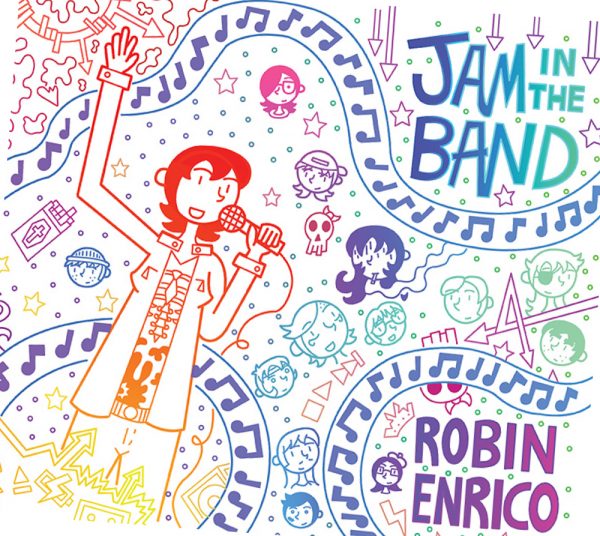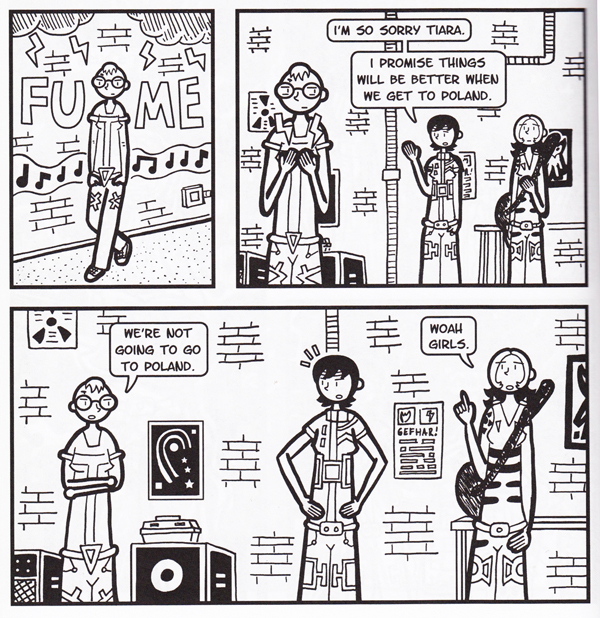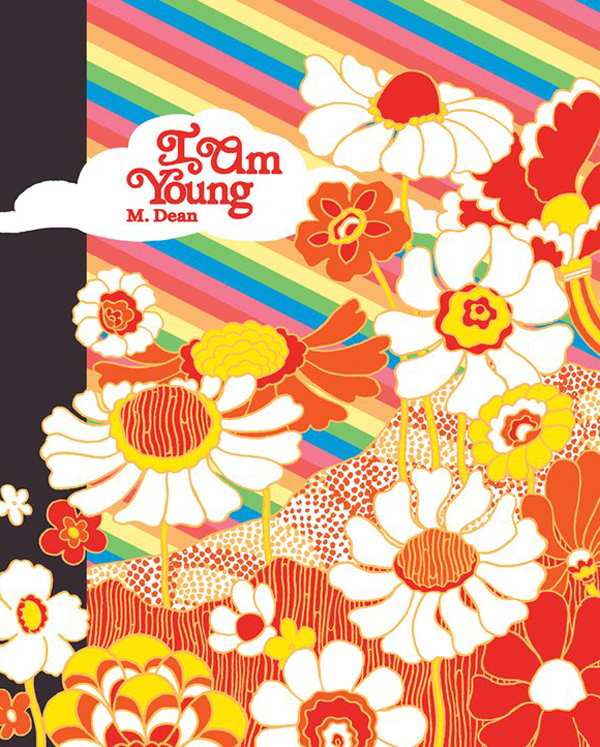At its most basic Jam In The Band is a pretty insightful and — just from my small knowledge on the subject — a realistic portrayal of the life of an indie band working its way through the levels to try and make something of itself, and just for that alone, it’s a winning comic. But Robin Enrico’s story goes a step further. It sends you plunging into the moment and then grabs you and pulls you outside of it in an amiable, on-target examination of the tug-of-war between nostalgia and change, and how the eternal quality of a youthful experience becomes just a dot on a timeline — and that’s okay.
Bianca is the driving force behind Pitch Girl, a trio from Watertown, Pennsylvania who might have differing goals in what exactly they want in the band, but are united in one important one — they want a way out of their lives. For Bianca, this specifically means a straight path out of Watertown, and her ego is manifest in such a way that she commandeers the desires of her bandmates to align with her own. That’s the way life sometimes works, though, and Bianca’s egotistical pursuit of escape and also revenge against the town that held her down may yet prove to be the turning point for Tiara and Corbin, the other members. And so they go on a tour that never ends.
Enrico does well in documenting the personal drama of the band as it winds its way through the indie circuit and makes a name for itself. She also well knows that, especially on that level, music is a network, and no band exists as an island, so gives space to the people floating around Pitch Girl who help make it happen. Each of these players gives an extra dimension to our understanding of the band as a whole and as individuals and also provides another way of looking at Pitch Girl that we might not encounter as readers taking in their drama.
I think one of the things that is fascinating about bands is the idea that people come together creatively in a way that impacts the lives of their listeners, but the listeners are very seldom privy to the circumstances that maintain or destroy the dynamic that they find so alluring. And the emotional impact of the first encounter with any given artist, so often during the teen years when we collate our taste through intense emotional need and defiance as a means to define ourselves, makes it hard to separate the individual players from the band identity that they worked for and we, as young fans, have attached to them. Band members aren’t necessarily any closer than any other manufactured group of friends, say like old roommates or co-workers, but fans attach a lot more personal importance to the grouping, and sometimes band members, as they move on, find themselves burdened by the existence of their younger selves within the band context.
Enrico plays with the linear presentation a little bit, bringing the reader through the general larger story of the band members and various other players, while occasionally cutting the action and backtracking to give more context to what we’re seeing. It’s a great narrative choice in that it mirrors the emotional complications of the way real life works but also plays into the ways we try to make some sense of the inner-workings of bands from the outside. “Why did they split up?” is one of the most complicated questions any given fan can ask and Enrico understands that, choosing an appropriate depiction of that answer, as well as a million other little questions that fans ask along the way.
I would hesitate to say that this is a story of growing up, but I think it’s fair to say that it’s one about aging. Not getting old, but the process of moving along in age, the inevitability of change, and what we all do in the struggle to both maintain who we were, to stay true to that, while still embracing the new opportunities that keep us from remaining in that stagnant state. Enrico is skilled at depicting this in a fluid, very human way, providing an emotional map that any person of a certain age can not only recognize but appreciate as reflective of any of our experiences.
And the dramatic conclusions Enrico comes to aren’t necessarily the end, as she has demonstrated herself. There is more change to come. Imagine these characters in 10 years, 20 years, 50 years. Who you are becomes something determined by wider expanses of experience over greater stretches of time, as well as the moment. And so you can never be quite the same person at 50 that you were at 20 — and yet, there you are.









